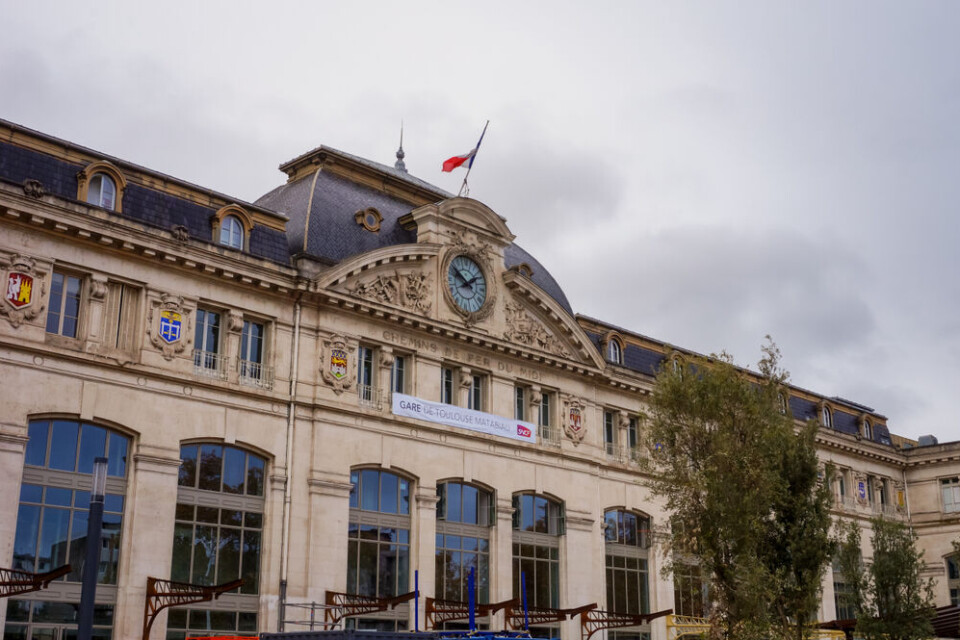-
New social media obligation for British and French visitors to the US to start ‘mid-2026’
There is confusion over the plan, with many expecting a February start date
-
Three more avalanche-related deaths in France, including one Briton
Some 28 deaths already recorded in the French Alps this season, many due to off-piste skiing or avalanches
-
French MPs vote in favour of renewed recognition of UK medical degrees
Post-Brexit rules mean UK degree holders have been limited in their ability to work in France
Controversy erupts around Bordeaux-Toulouse high-speed train line
The mayor of Bordeaux has sparked debate after denouncing the train plans as ‘insane’, but proponents say that the line will offer a crucial, much-needed link between Paris and the south

Controversy is growing over plans to build a high-speed train line between Bordeaux, Toulouse, and Dax, after Bordeaux’s ecologist mayor denounced the €10billion project as “insane” and “anachronistic”.
Pierre Hurmic, of the Europe Ecologie Les Verts (EELV) said at a press conference on October 28 that “everything should be done to stop” the building of the high-speed line (ligne à grande vitesse (LGV)).
Now, a call for projects has been launched online, to find possible alternative solutions, such as improving existing railway lines.
Mr Hurmic told BFMTV: “[Proponents of the line] are trying to trap us by saying that it is the LGV or nothing. But billions of euros have already been spent on high-speed rail. We have seen that it has dried up our territories, that it has been done to the detriment of our regional railway network (TER).
"It makes a difference of [only] 20 minutes between Toulouse and Bordeaux," he claimed.
However, proponents of the Grand projet du Sud-Ouest (GPSO) line say that it will shorten journey times by 56 minutes for a direct route, and 49 minutes when taking into account stops in Agen and Montauban.
The LGV project was relaunched at the end of September, after the highest administrative court Le Conseil d’Etat approved the final legalities of the project, reports La Dépêche du Midi.
The project is intended to be partly funded by the state, which is expected to pay €4.1billion. This would equate to 40% of the total, with another 40% expected to come from Occitanie and Nouvelle Aquitaine, and the rest from European funds.
But of the four departments concerned by the railway line, namely Gironde, Lot-et-Garonne, Pyrénées-Atlantiques and Landes, only the latter appears to be in 100% favour.
Disagreement within Bordeaux Metropole
In Bordeaux, the president and vice-president are in disagreement.
Mr Hurmic, who is also the first vice-president of Bordeaux Metropole, has said that he will refuse the use of €320million, intended for railway developments in the south of the city, for the financing of the LGV.
But socialist president, Alain Anziani, believes that the funds should be used for the project.
He told France 3: "The ecologists don't want planes. Now they don't want a train. What do they want? A car? Is that an ecologist's dream? More cars and freight on trucks instead of trains.”
Alain Rousset, president of Nouvelle-Aquitaine, is also in favour of the project.
He has said that opponents have simply put forward "the same arguments as those who criticised the Paris-Bordeaux LGV".
Mr Rousset said that the time saving from the line would not be "a quarter of an hour", as claimed by critics, "but one hour (between Bordeaux and Toulouse) and 55 minutes with Bayonne".
He added that there is even "an ecological logic to making this second railway line”, as it will reduce car traffic on the roads.
Occitanie president: ‘I stand up against selfishness’
The president of the Occitanie region, socialist Carole Delga, is also critical of Bordeaux mayor Mr Hurmic.
She is in favour of the Bordeaux-Toulouse high-speed line, and also plans to build a Montpellier-Perpignan line.
In a press release, she stated: “I speak on behalf of the 60% of French people who are currently more than four hours away from Paris by train, which is a real injustice and an unacceptable territorial inequality.
"I stand up against petty selfishness because it is easy to talk when you are two hours from Paris and to tell millions of French people that they do not need to be connected to others and close to the capital.
“This selfishness is all the more irresponsible given that, along with the other local authorities in Occitanie, we have financed the Tours-Bordeaux TGV line to the tune of €300million!”
Ms Delga added that the Montauban-Toulouse railway line is now saturated, "and (that) we cannot even add an extra train".
Toulouse mayor Jean-Luc Moudenc has also called Mr Hurmic’s stance a "rather selfish" attitude. Speaking on Sud Radio, he said: “Pierre Hurmic is part of a small minority that is in a backward action against the LGV.”
The mayor of Montauban, Axel de Labriolle, has also criticised Mr Hurmic’s comments.
He told FranceInfo: "For us, it is really vital. [Currently], residents are obliged to take the car to go to Bordeaux and to take the plane to go to Paris. So, that is even more polluting, and takes a long time.”
He said that with the LGV, Montauban would only be 45 minutes by train from Bordeaux and 2h45 from the capital.
Mr de Labriolle added: "Toulouse, the fourth largest city in France, is the only one that is not connected to the capital. This is detrimental, not only for Toulouse and Montauban, but also for the whole of the southwest and the Occitanie region, because many people live in Gers, Lot and Tarn.”
Related stories
Marseille-Nice becomes first French TER line to leave SNCF control
French regions race to fund TGV with €4.1bn before 2022 elections
See France’s superslick and eco-friendly TGV of the future
























